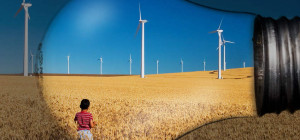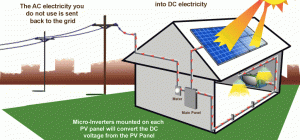 Most people don't think about the fact that water has economic value. Often thought of as an infinite resource that is readily available to all, few people ever give thought to the costs and benefits of water or water as a good in an economic market.
Most people don't think about the fact that water has economic value. Often thought of as an infinite resource that is readily available to all, few people ever give thought to the costs and benefits of water or water as a good in an economic market.
Basic characteristics of water, in fact, make it a special form of economic good, and there are varying opinions among experts and economists about how it should be economically addressed. The water market, therefore, is a difficult one to define and regulate in a fair and scalable manner.
In addition to its merits as a special economic good or perhaps, more accurately, because of those, the characteristic benefits of water carry over into another essential commodity; the commodity of energy.
With our sights steadily fixed on the high cost of energy, most generally think about solar power, natural gas, coal and nuclear power; rarely do we think of hydro power technology when it comes to renewable energy and yet, the cost of hydroelectricity is low, relatively speaking, thus making it a highly competitive source of renewable energy.
Those characteristics that define this precious resource that is accurately defined as a special good, are as follows:
- Water is essential
Water is an essential and vital resource and without it, life and human activity cannot exist. Though a human being can live without food for a month, one can only live without water for about a week.
- Water has no substitute
 Economic theory is generally based on the existence of choice, however, given that water has no alternative, and that fresh water is essentially non-substitute, choice is removed from the equation and the only exception to this rule are coastal areas that can afford to produce fresh water through desalinization.
Economic theory is generally based on the existence of choice, however, given that water has no alternative, and that fresh water is essentially non-substitute, choice is removed from the equation and the only exception to this rule are coastal areas that can afford to produce fresh water through desalinization.
- Water is finite
The amount of water available to the earth is limited by those amounts that circulate through the atmosphere; therefore we are limited to the amount of rainfall that occurs annually.
- Water is elusive
Since water flows under gravity, it must be captured or it will be gone and useless to us. There are underground layers of rock, sand and gravel that qualify as ground water aquifers, streams, rivers, and natural lakes, but these can only be used sustain-ably if they are replenished. Replenishment, unfortunately, cannot be man made and depends on annual recharge amounts that are determined by atmospheric influence, or rain. Leaks are a tremendous problem; in developing countries, sometimes 40% of water is lost before it can be captured for use because of lack of infrastructure.
- Water is a system
The annual water cycle from rainfall to run off is a complex system where several processes take place. Water only has one, downstream, direction of flow and flow is effected by surface runoff, atmospheric recharge, infiltration, leakage, seepage, re-infiltration, and moisture recycling that is all connected, and interdependent. If there is flow interference from upstream, the impact that results downstream creates third party effects. Often times, downstream users depend on the return flow of upstream patterns or usage. Return flows could be decreased with increased efficiency and management at the upstream usage point thereby alleviating impact downstream. If groundwater is extracted from an aquifer, further down in the cycle less water will flow. If at any point waste is discharged, damage will occur downstream.
- Water is bulky
Although water is essential for almost every economic activity imaginable, there are very few examples of water being transported over any great distance, particularly without taking gravity into consideration and equation. When water transfers do occur, they generally are only done for high value gains in the domestic or industrial sectors and with some exception for highly subsidized agricultural projects. Commodities are regularly shipped throughout the world, but water is not one of them. Instead, the products of water are transported.
As scientists, engineers, thought leaders, enterprises and governments come together to determine viable solutions to water conservation, water markets, water as a commodity, water technologies, hydro power technologies and prevention of shortage, these questions, and more, get closer to resolution in hopes that the predictions of a world in deep water crises as early as 2025, will not come to pass. This topic will be one of the topics discussed at the wastewater treatment conference this year in Israel. The conference will take place in Tel Aviv on October 22nd 2013. Registration is now open.







